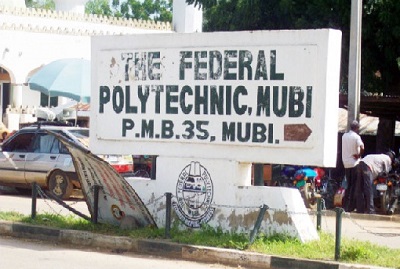Re: UN Sanctions And Resolutions Against Nigerian Officials
Peregrino Brimah
Between 40,000 and 80,000 Nigerians, mostly civilians have been killed in an out of control state of insecurity in Africa’s largest nation. Nigeria, a top oil producer hit global headlines in recent weeks as Boko Haram terror reached an all time high with the abduction of over 234 girls and gunmen massacres and bombings across the north of the nation, not excluding the capital city of Abuja. In the past two days, over 600 civilians have been massacred and more girls have been abducted.
Nigeria’s state of worsening insecurity is recognized to be conjoined with the brutality, recklessness, incompetence and gross corruption of its civilian administration. In the face of increasing administrative economic terrorism, impunity for terror masterminds and sponsors along with the same for financial terrorists within and out of –but associated with—the administration, whose illegally amassed funds, including the nations missing oil billions (USD), finance terror; the world lead players, and the United Nations, the leading body on protection of human rights and the right to opportunity and life-security of individuals of and in all nations, remain docile and overtly clement.
As we demand resolutions condemning the Nigerian government and harsh sanctions targeting the top government officials and their private partners, we draw the urgent attention of the United Nations and world players to the following global conventions:
The International Convention For The Suppression Of The Financing Of Terrorism, of 1999, in Article 2 (1) stipulates that “Any person commits an offence within the meaning of this Convention if that person by any means, directly or indirectly, unlawfully and willfully, provides or collects funds with the intention that they should be used or in the knowledge that they are to be used, in full or in part, in order to carry out: (a) An act which constitutes an offence within the scope of and as defined in one of the treaties listed in the annex; or (b) Any other act intended to cause death or serious bodily injury to a civilian, or to any other person not taking an active part in the hostilities in a situation of armed conflict, when the purpose of such act, by its nature or context, is to intimidate a population, or to compel a government or an international organization to do or to abstain from doing any act;” Nigeria’s government officials persist in clear violation of this convention;
Whereas, the International Convention For The Suppression Of The Financing Of Terrorism, of 1999, in Article 2 (4) stipulates that “Any person also commits an offence if that person attempts to commit an offence as set forth in paragraph 1 of this article.” and (5), that “Any person also commits an offence if that person: (a) Participates as an accomplice in an offence as set forth in paragraph 1 or 4 of this article; (b) Organizes or directs others to commit an offence as set forth in paragraph 1 or 4 of this article;” with Nigeria’s government officials in clear violation, there is no reaction from global bodies;
The International Convention For The Suppression Of The Financing Of Terrorism, of 1999, in Article 9 (1) stipulates that “Upon receiving information that a person who has committed or who is alleged to have committed an offence set forth in article 2 may be present in its territory, the State Party concerned shall take such measures as may be necessary under its domestic law to investigate the facts contained in the information.” And (2), that “Upon being satisfied that the circumstances so warrant, the State Party in whose territory the offender or alleged offender is present shall take the appropriate measures under its domestic law so as to ensure that persons presence for the purpose of prosecution or extradition,” Nigeria’s government officials are in direct violation of the convention, but remain without international recompense;
The International Convention for The Suppression of Terrorist Bombings of January 12th, 1998, in Article 5 declares: “Each State Party shall adopt such measures as may be necessary, including, where appropriate, domestic legislation, to ensure that criminal acts within the scope of the Convention, in particular where they are intended or calculated to provoke a state of terror in the general public or in a group of persons or particular persons, are under no circumstances justifiable by considerations of a political, philosophical, ideological, racial, ethnic, religious or other similar nature and are punished by penalties consistent with their grave nature;” Article 6 (1) declares: “Each State Party shall take measures as may be necessary to establish its jurisdiction over the offences set forth in Article 2 when: (a) The offence is in the territory of that State.” Article 7 (1) declares: “Upon receiving information that a person who has committed or who is alleged to have committed an offence as set forth in article 2 may be present in its territory, the State Party concerned shall take such measures as may be necessary under its domestic law to investigate the facts contained in the information.” And (3) states: Upon being satisfied that the circumstances so warrant, the State party in whose territory the offender or alleged offender is present shall take the appropriate measures under its domestic law so as to ensure that person’s presence for the purpose of prosecution or extradition.” Copies of the Abba Moro 2012 White paper report indicting Nigerian government officials in the establishment of Boko Haram terrorist sect; and records of an appointed official of the Nigerian State, Bamanga Tukur in which he professed support for Boko Haram terror, are internationally known and can be provided upon request, yet the Nigerian government in violation of the convention escapes remand;
In consideration of article 68 (1) of resolution 58/4, the United Nations Convention against Corruption (UNCAC) entered into force on 14 December 2005, which provides for mechanisms for implementation of the Convention, Nigeria fails to satisfy the conditions stipulated and escapes repudiation;
Article 3 of the Universal charter of human rights declares that “Everyone has the right to life, liberty and security of person;” Nigerians are denied these rights and this is done under the eyes of the international community;
Article 16 (3) declares that “The family is the natural and fundamental group unit of society and is entitled to protection by society and the State;” Nigerians are denied these human rights and these violations are perpetrated by the ruling authorities under the watch of the international leading bodies;
Whereas preamble section 3 of the Universal charter of human rights declares that is essential, if man is not to be compelled to have recourse, as a last resort, to rebellion against tyranny and oppression, that human rights should be protected by the rule of law;
Let it be known that as recognized in preamble section 3 of the Universal charter of human rights, the people of Nigeria will be left no option than dangerous rebellion against the authority officials, and the United Nations will be implicate in the actions and consequences of such resort to self determination and self justice in the advent of continued tolerance to the tyranny, oppression and grave crimes against humanity being perpetuated by the Nigerian government against its people.



